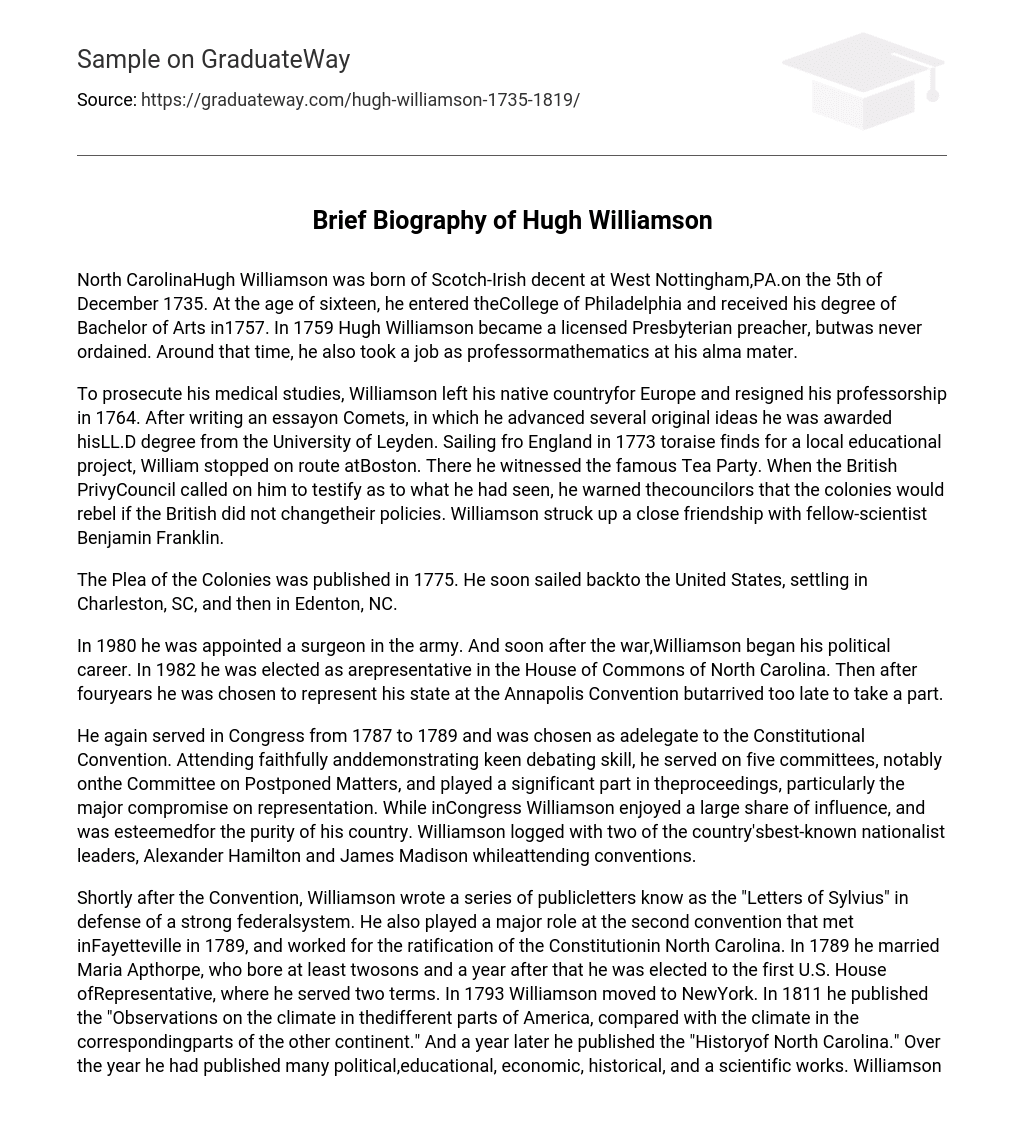North CarolinaHugh Williamson was born of Scotch-Irish decent at West Nottingham,PA.on the 5th of December 1735. At the age of sixteen, he entered theCollege of Philadelphia and received his degree of Bachelor of Arts in1757. In 1759 Hugh Williamson became a licensed Presbyterian preacher, butwas never ordained. Around that time, he also took a job as professormathematics at his alma mater.
To prosecute his medical studies, Williamson left his native countryfor Europe and resigned his professorship in 1764. After writing an essayon Comets, in which he advanced several original ideas he was awarded hisLL.D degree from the University of Leyden. Sailing fro England in 1773 toraise finds for a local educational project, William stopped on route atBoston. There he witnessed the famous Tea Party. When the British PrivyCouncil called on him to testify as to what he had seen, he warned thecouncilors that the colonies would rebel if the British did not changetheir policies. Williamson struck up a close friendship with fellow-scientist Benjamin Franklin.
The Plea of the Colonies was published in 1775. He soon sailed backto the United States, settling in Charleston, SC, and then in Edenton, NC.
In 1980 he was appointed a surgeon in the army. And soon after the war,Williamson began his political career. In 1982 he was elected as arepresentative in the House of Commons of North Carolina. Then after fouryears he was chosen to represent his state at the Annapolis Convention butarrived too late to take a part.
He again served in Congress from 1787 to 1789 and was chosen as adelegate to the Constitutional Convention. Attending faithfully anddemonstrating keen debating skill, he served on five committees, notably onthe Committee on Postponed Matters, and played a significant part in theproceedings, particularly the major compromise on representation. While inCongress Williamson enjoyed a large share of influence, and was esteemedfor the purity of his country. Williamson logged with two of the country’sbest-known nationalist leaders, Alexander Hamilton and James Madison whileattending conventions.
Shortly after the Convention, Williamson wrote a series of publicletters know as the “Letters of Sylvius” in defense of a strong federalsystem. He also played a major role at the second convention that met inFayetteville in 1789, and worked for the ratification of the Constitutionin North Carolina. In 1789 he married Maria Apthorpe, who bore at least twosons and a year after that he was elected to the first U.S. House ofRepresentative, where he served two terms. In 1793 Williamson moved to NewYork. In 1811 he published the “Observations on the climate in thedifferent parts of America, compared with the climate in the correspondingparts of the other continent.” And a year later he published the “Historyof North Carolina.” Over the year he had published many political,educational, economic, historical, and a scientific works. Williamson was afounder of the Literary and Philosophical Society of New York and aprominent member of the New York Historical Society. He dies on the 22ndof May 1819, in the eighty-third year of his life and was buried at theTrinity Church in New York.





